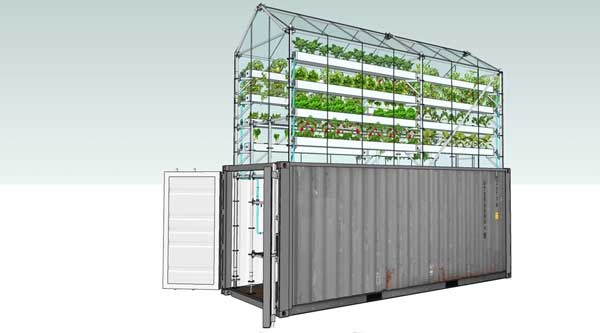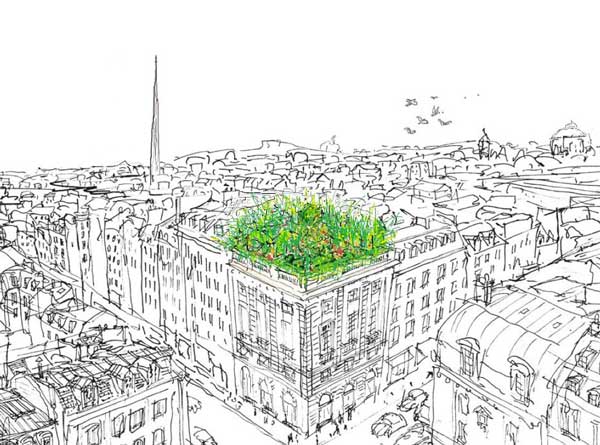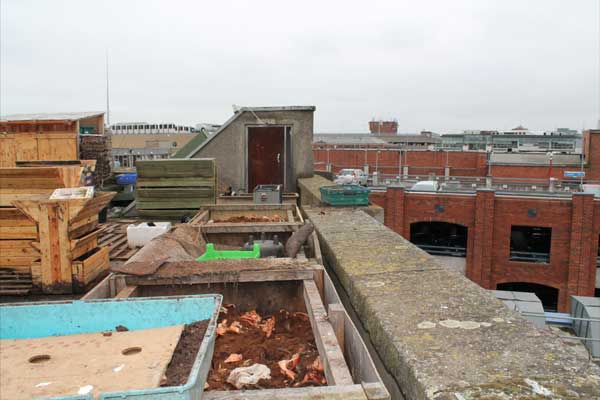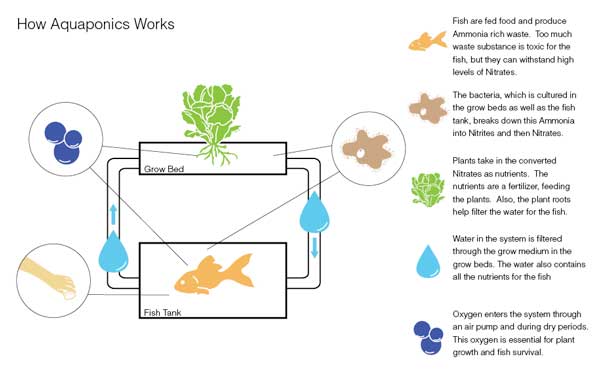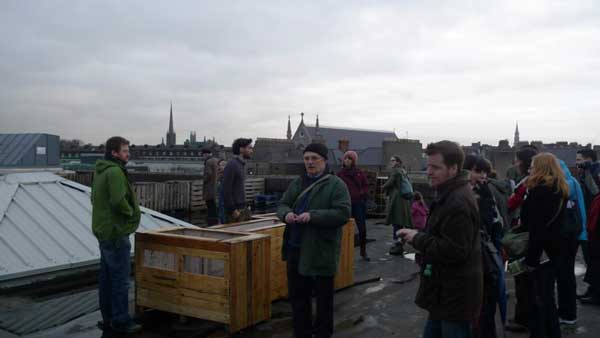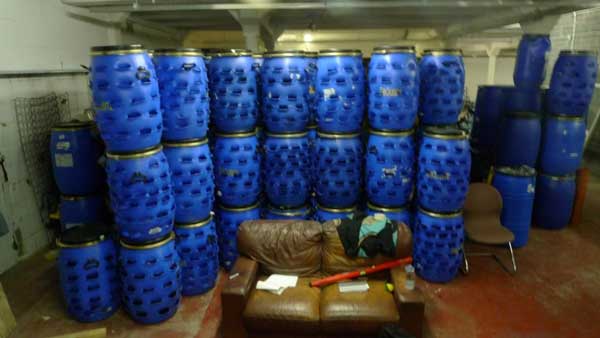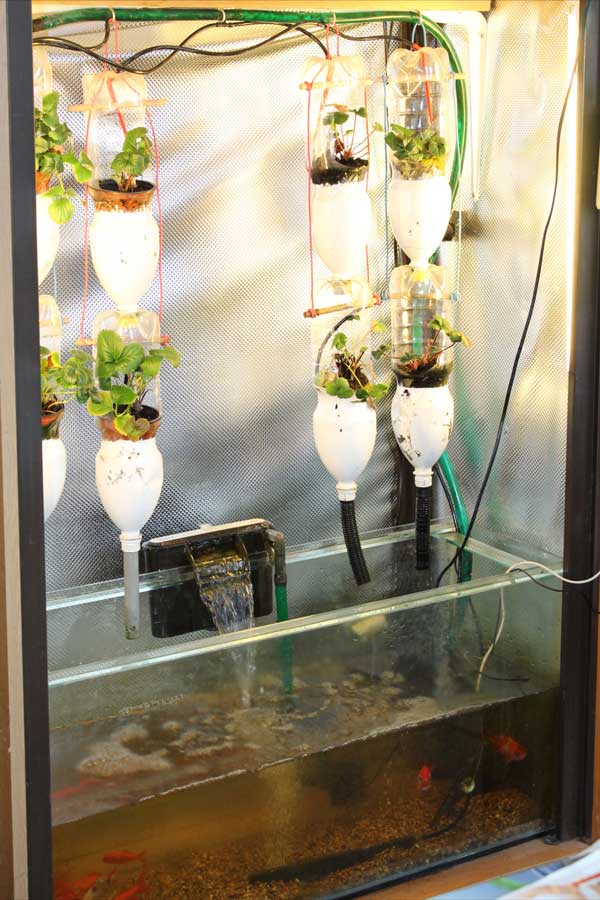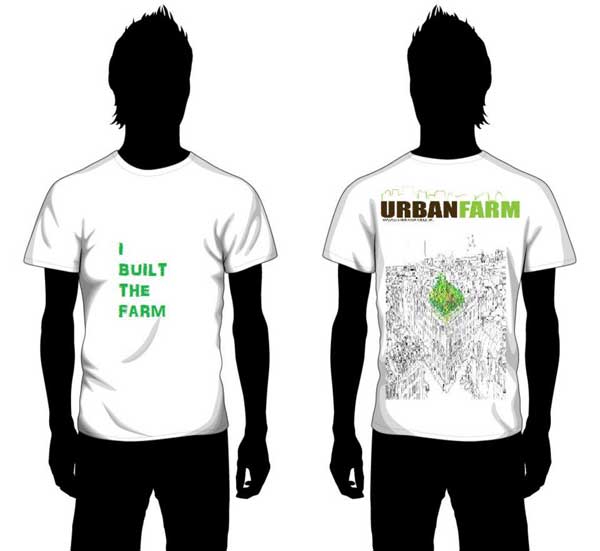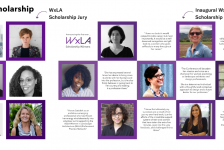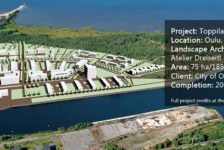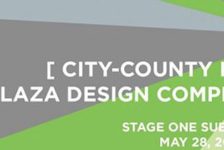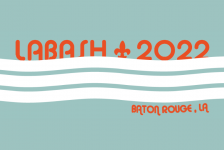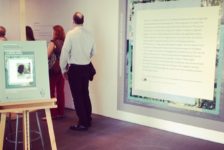In the center of Dublin, on top of an old chocolate factory sits Ireland’s first urban farm. It is an oasis in progress, with a small brood of hens happily pecking through composting vegetables, high above Dublin city on a rooftop littered with various tiered planters entirely handmade. Most objects within the premise are up-cycled or recycled from pallets and various other materials that the group have scavenged.
Inside their eco-sanctuary are various methods of farming from their fish-tank aquaponics to their vast compost bins. Urban farming is the practice of sustainable development and sustainable food by producing food within the city limits, using recycled materials and being as ecological as possible. I met with eco- enthusiast Paddy O’Kearney, who talked me through the process of successfully running an urban farm and their aims for the future. “We came across this site [The Chocolate Factory] and it was pretty ideal essentially to develop the project itself. The project was officially launched in the middle of November, along with our FundIt campaign, aside from that we started construction, looking at materials and different ideas in development of the project itself around July”. “Essentially there is a major inertia around actually getting things like this done. Sustainability, food production and the things we can do with the resources at hand such as up-cycling pallets and generally keeping the aim of just being as sustainable as possible”. Aquaponics seems to be core to your project, could you explain that further? “It is the production of food using fish; essentially it is a mixture between agriculture and aquaculture, so basically, you are growing a certain amount of food from fish waste and sustaining the fish from a certain amount of food you are producing yourself. Its ramifications are far reaching in terms of closed vertical systems and developing food systems for an urban environment, which is pretty useful. Also, in situations like deserts and such, they are incredibly useful”. What was your biggest challenge? “Building it! We are looking to develop the project itself, it is currently still in development. Technically at this stage it is not an urban farm as of yet, it’s an urban farm in development. We are basically in the process of building it, managing our resources, managing our time properly, getting people to help us build it as well, so there are a lot of learning curves”. “In particular the manner in which we are developing materials and also due to the fact we are the first ones, we can’t just go to the next one and put questions to our cohorts, we’re the first ones (doing this) which means a lot of experimentation and a lot of learning”. What is the objective of urban farming and are you supplying services to the community at the moment? “As of yet, no because we are still constructing it, our primary focus is completion at the moment. Realistically speaking it is developing projects like this, it doesn’t mean you are going to be able to produce all the food for the city yourself, within the confines of the city but definitely a percentage”. “Overall if you were to use every supposed site within every city center, for the population living in cities, but the fact of the matter is that Dublin’s population density is nowhere near as high as London, New York or Paris, so I’d say for Dublin that figure would be much higher, between 25-30%, potentially, if you were to use brownfield sites, rooftops, balconies and lawns”. Do you think we as a country are reverting back to more agricultural roots? What demographics do you get? “I think it’s not just Ireland itself, it’s globally as well; you have different projects around the world. Primarily the focus is on sustainability and making sure we have a future and that we can minimize cost, insuring that there is less waste. The idea is basically anyone who is living in an urban environment, so anyone from school children, to teenagers, to people your own age, essentially anyone who has time, and, of course, older people as well. We are developing systems for basically everyone and anyone. With the urban farm that number [amount of people fed by urban farms] would be arbitrary; it is about developing as many sustainable systems as possible”. What is the future of urban farming in Ireland and what are your aims/goals for the Dublin Urban Farm? “The plan for the project and also my own (City Composting Ltd.) is to take up various other sites and develop them as the time goes by, train and develop the skills of individuals so they can go off and start their own projects, within and outside of Dublin and potentially consulting with corporates like Google or whomever wants to develop their own green image”. Well, urban farming may not be new; it is only a recent trend in Ireland. This project is only in its youth and as such offers a unique insight into how urban farms develop, the challenges facing them and the solutions utilized to allow the urban farm to thrive. This project is also a perfect example of how to make use of empty buildings and brownfield sites within our cities. With cities facing numerous problems (food, peak oil, climate change) the practice of urban farming will only grow in importance. Interview conducted by Lisa Tierney Dublin Urban Farm’s website: https://www.urbanfarm.ie/ Facebook Page: https://www.facebook.com/inspireorganics Fundit: https://www.fundit.ie/project/dublins-urban-rooftop-farm Enjoy what you’ve read! Support us and pick up one of our awesome T-shirts and hoodies today, Click the link Published in BlogLogin
Lost Password
Register
If this is your first time on the new site, please click "Forgot your password?". Follow the steps to reset your password. It may be the same as your old one.



